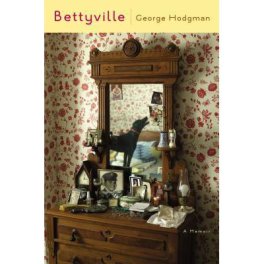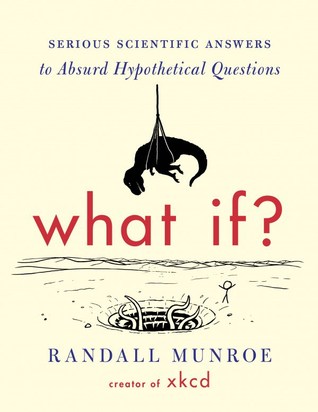Howdy. These are the best books I’ve read in the past year. Some were written in 2017, others are older. Except for the top pick coming first, the books are in no particular order. Enjoy!
Priestdaddy—Patricia Lockwood
 My wife received an advance reader’s copy of this book and as I saw it around the house I mocked it more than once. I found the title silly and the cover deeply unappealing (I stand by both those opinions). But then I read a short, positive review of Priestdaddy in the New Yorker, picked up this book I had been laughing at, and it took me only a few pages to be blown away. Lockwood delivers hilarious, brilliant sentences in just about every paragraph. While Lockwood’s first publications were poetry, Priestdaddy is a memoir; the title refers her father, who became a priest after first having a daughter. He’s the most distinctive character in the book—he likes to hang around the house in his underwear playing the electric guitar. I loved in when Lockwood was leaving home and, rather than to the door, he stayed upstairs and played “I Want You to Want Me.” This my favorite book of the year.
My wife received an advance reader’s copy of this book and as I saw it around the house I mocked it more than once. I found the title silly and the cover deeply unappealing (I stand by both those opinions). But then I read a short, positive review of Priestdaddy in the New Yorker, picked up this book I had been laughing at, and it took me only a few pages to be blown away. Lockwood delivers hilarious, brilliant sentences in just about every paragraph. While Lockwood’s first publications were poetry, Priestdaddy is a memoir; the title refers her father, who became a priest after first having a daughter. He’s the most distinctive character in the book—he likes to hang around the house in his underwear playing the electric guitar. I loved in when Lockwood was leaving home and, rather than to the door, he stayed upstairs and played “I Want You to Want Me.” This my favorite book of the year.
I Am Brian Wilson—Brian Wilson, with Ben Greenman
This autobiography of the Beach Boy mastermind in a non-chronological swirl, and has a narrative voice that feels oddly medicated. But this unconventional rock autobiography is a fascinating one, especially if you appreciate “Good Vibrations” and take an interest in mental illness. My favorite anecdote from the book: a starstruck Don Henley comes backstage to ask Wilson to sign his copy of Pet Sounds:
I wrote on his record, “To Don: thanks for all the great songs. Brian Wilson,” Don was so grateful. It was almost like he couldn’t talk. He turned to leave. “Hey Don,” I said. “Wait a second.” I took the record back, crossed out “great,” and wrote “good.” Some people would have been mad, but Don just looked at it and laughed.
Consequence— Eric Fair
The memoir of a man who is thoughtful on matters of morality, even as he becomes an interrogator at the Abu Ghraib prison in Iraq. What I’ll remember: the lessons he was taught as a young police officer about the value of aggression, and his depiction of chaos in Iraq—not just because Fair was at war, but because it felt like there was no intelligent hand guiding the process or purpose of his mission.
 Eileen—Ottessa Mossfegh
Eileen—Ottessa Mossfegh
I picked up this novel because John Waters said in his By the Book interview in the New York Times that he had given Eileen to all his friends as a Christmas gift. So I was expecting this book to be fun in a way that it isn’t—the first half of this novel is deeply grim. But as the story goes on and Eileen lifts herself up—or at least out—of the life she shares with her alcoholic, verbally abusive father, Mossfegh’s writing just gets smarter and smarter. (P.S. This would be an example of a book cover that I love.)
The Girl on a Train—Paula Hawkins.
My agent recommended I read this, and I’m glad I listened. Hawkins’ pacing and plotting somehow unlocked my brain and gave me a large idea about the book I am writing now (even though Ms. Hawkins book has nothing in common with mine, except that they are both thrillers). So thanks for that.
Stranger Things Happen—Kelly Link
Link’s short stories, weird, honest and dark in a way I’ve not encountered elsewhere. It’s refreshing to be around writing this original.
Dark Matter—Blake Crouch
The souped-up thriller has some great whoa moments. After finishing I checked online to see if the movie rights had been sold—and they had, for mucho money. Not surprised.
Still Life & A Fatal Grace—Louise Penny.
I generally don’t read books by an author one after another because I find that they blur together. So the fact that I hit books 1 & 2 in Louise Penny’s Gamache series in the same year is a compliment. The flavors of these books: genteel, small-town Canada, avuncular, and quirky—but with occasional bite that is the essential ingredient.
Killers of the Flower Moon: The Osage Murders and the Birth of the FBI—David Grann.
Kudos to Grann for great detective work in uncovering this non-fiction story of the murders of the oil-rich Osage in the early part of the 20th century by white men who wanted their money.
Magpie Murders—Anthony Horowitz
Impressively structured and well-executed mystery.
 Bettyville—George Hodgman
Bettyville—George Hodgman
This memoir of a former Vanity Fair editor leaving New York to return to rural Missouri to care for his aging mother deals out unexpected and unforgettable moments. Hodgman’s stories about growing up closeted in a stiflingly small town are vivid and brutal. He memorably recounts his frenetic run through the publishing world. But my favorite scenes are the ones where George and Betty encounter art. One night George takes her to a literary review dinner where a woman reads modern poetry; another time he takes her to Columbia. Mo. for a screening of the Paul Thomas Anderson movie The Master. Betty’s appalled, cutting remarks about both the art and what George must have been thinking when he subjected her to these atrocities are priceless. I read the entirely of both scenes out loud to my wife. I would read an entire book of Betty and George’s encounters with culture.
Advertisements Share this:





